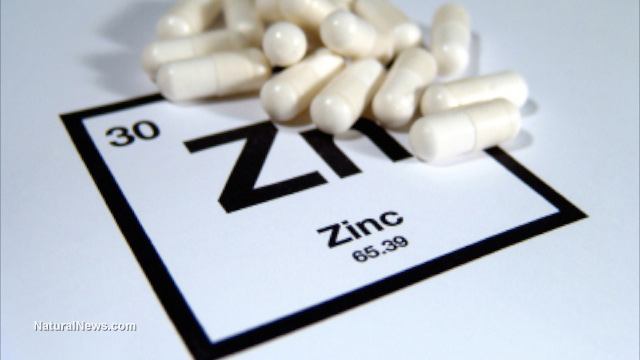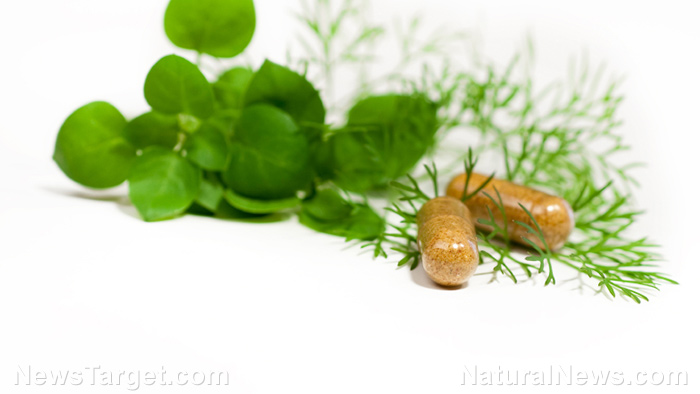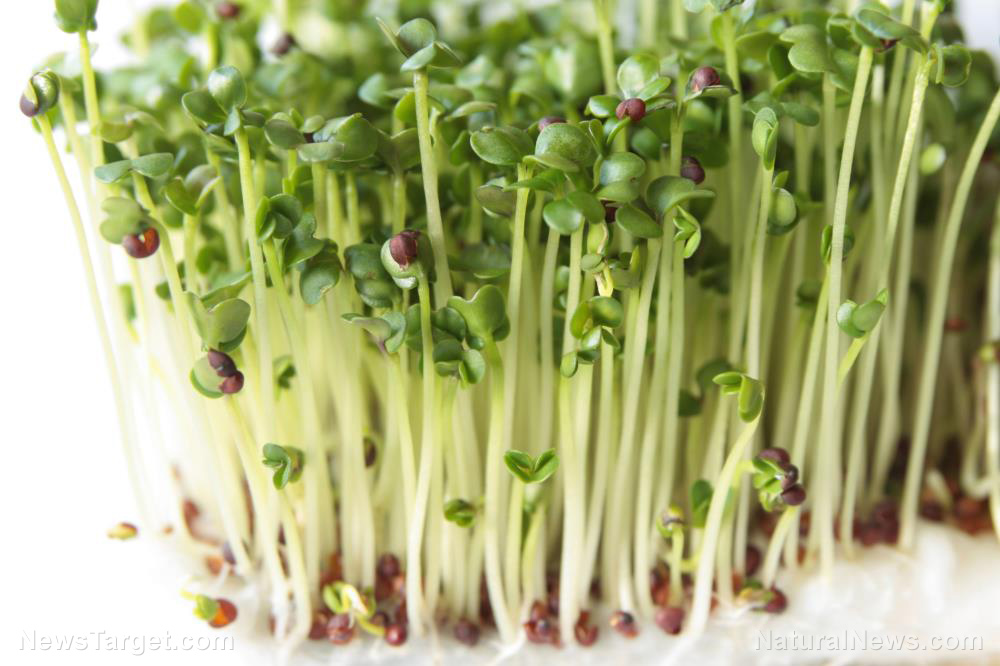Organic grass-fed whey protein: A protein supplement that is way better than the rest
03/23/2022 / By Olivia Cook

If you’re looking to curb your appetite; burn fat; build lean and toned muscles and strong bone; keep bodily fluids in balance; protect enzyme functions; support your nerves, muscles and bones; boost the health of your skin, hair and nails; boost your immune system and prevent diseases, then supplement with organic grass-fed whey protein.
Whey is so effective at providing a more absorbable source of protein (the building blocks of life) than any other type of food or supplement, without adding a lot more calories or carbohydrates to your diet. According to research published in the journal Food Science, whey protein is one of the highest-quality proteins because of its amino acid content and digestibility.
Compared to animal-based and plant-based proteins, grass-fed whey protein has the highest levels of cysteine – a precursor to glutathione, the “master antioxidant” and the most powerful naturally occurring antioxidant in the body.
Reasons you should use organic grass-fed whey protein
Grass-fed whey protein is devoid of the bad stuff you find in conventional whey protein, and consuming grass-fed protein reduces your carbon footprint.
“In the fitness community, [grass-fed] whey protein is the gold standard and any health-minded individual can tell you that grass-fed anything is better than the alternative. Healthy cows and goats, healthy you,” said registered dietitian Amy Shapiro.
Unhealthy sources, such as non-organic meat, dairy products produced by factory-farmed cows and GMO crops, find their way to people’s plates more often than clean protein sources do. Grass-fed whey protein is soy-free, gluten-free, not genetically modified, devoid of any extra sugar and best of all, non-hormonal.
Farmers who raise their cows and goats on pasture follow sustainable farming practices – no chemical fertilizers, pesticides or antibiotics. Grass-fed animals are typically healthier so they do not need hormones or antibiotics. Thus, cows and goats that are pasture-raised produce less carbon footprint.
Grass-fed whey protein is a complete high-quality protein, with all nine essential amino acids and little to no lactose content – the dairy sugar that can cause digestive distress in people with lactose intolerance.
It is very digestible compared to other types of protein. Whey protein is among the best-studied supplements in the world and for good reason. It has a very high nutritional value, and scientific studies have revealed numerous benefits. (Related: Here are 6 reasons to consider whey protein.)
The following are the some of the things organic grass-fed whey protein can do:
Supports musculoskeletal health
Whey protein is particularly high in leucine, one of the three essential branched-chain amino acids (BCAAs), that is critical for protein synthesis and muscle repair. It is also ingested at a much faster rate than casein, ensuring blood leucine level peaks soon after ingestion.
A study published in the Journal of Health and Conditioning Research confirmed the positive effects of whey protein supplementation on body composition, muscular strength, muscular endurance and anaerobic capacity during 10 weeks of resistance training.
Supports your body’s antioxidant production
A study published in the Journal of Dairy Science in 2018 puts whey protein in the context of other known food antioxidants and promoters of cellular antioxidant pathways that help the body fight against free radicals and avoid or reduce oxidative stress.
Supports healthy cardiovascular function
Whey protein can help keep your heart healthy by supporting blood pressure levels that are already within the normal range. Studies conducted in animals have demonstrated that whey protein may increase artery elasticity.
Supports healthy immune function
Whey protein is rich in biochemically vital cysteine, which helps maintain adequate glutathione production as it is known to decrease with age. Glutathione is essential for the immune system and vital in building and repairing tissues. It also assists in boosting other antioxidants, like vitamin C, vitamin E, alpha-lipoic acid and coenzyme Q10 (CoQ10).
CoQ10 has been shown to help improve heart health and blood sugar regulation, assist in the prevention and treatment of cancer, reduce the frequency of migraines and reduce the oxidative damage that leads to muscle fatigue, skin damage, brain diseases and lung diseases.
Supports intestinal health
A study published in Food & Function in 2017 reported on the potent prebiotic effect of whey protein by selectively stimulating desirable bacteria and short-chain fatty acids (SCFA) that influence gut-brain communication and brain function, contributing to improved intestinal health.
Supports healthy liver function
The BCAAs leucine, isoleucine and valine, three of the nine essential amino acids in whey protein, have been scientifically proven to improve the health of people with cirrhosis, a chronic disease in which the liver does not function properly. A study published in Translational Gastroenterology and Hepatology in 2018 reported that BCAAs are involved in protein metabolism, gene expression, insulin resistance and suppressing the growth of hepatocellular carcinoma (HCC) cells.
Supports brain health
In addition to several types of high-quality amino acids, whey protein is rich in magnesium and zinc that has been shown to prevent depression, improve memory and ward off an array of mental disorders. A study published in ClinicalTrials.gov of the U.S. National Library of Medicine associated whey protein supplementation to improved artery and brain health and reduced risk of cognitive function decline in older adults.
Naturally uplifts mood and promotes healthy sleep patterns
A study published in Nutrition Reviews in 2018 reported that whey protein contains alpha-lactalbumin, a bioactive peptide that increases blood tryptophan levels and in the process promotes the synthesis and availability of serotonin (also known as the feel-good chemical) in the brain. In turn, serotonin supports the production of melatonin, the hormone that helps regulate sleep patterns.
Supports healthy weight management
A 32-month study conducted by the Tel Aviv University published in the Journal of Nutritional Biochemistry, concluded that a breakfast diet primarily made up of whey protein markedly reduced the hunger hormone ghrelin – compared to a breakfast containing eggs, soy or tuna, or a breakfast high in carbohydrates. (Related: What protein for breakfast helps diabetics lose weight safely and effectively.)
As responsible consumers of food, make the nutrition label your source of truth to know that you’re getting grass-fed, high-quality, non-GMO, certified organic whey protein that is free of additives, such as refined sugar, fillers and/or artificial flavors.
Follow SupplementsReport.com to learn more about supplements like whey protein.
Watch the video below about the health benefits of organic whey protein.
This video is from the Health Ranger Store channel on Brighteon.com.
More related stories:
Fermented whey protein is a superfood (opinion).
Prepper must-haves: Here’s why you need protein powder in your food stockpile.
Sources include:
Submit a correction >>
Tagged Under:
aging secrets, antioxidants, brain health, cows milk, digestion, fitness, food science, grass-fed, immune system, liver health, mental health, milk protein, muscle health, nutrients, Organic, sleep, slender, supplements, whey protein
This article may contain statements that reflect the opinion of the author
RECENT NEWS & ARTICLES
Antioxidants.News is a fact-based public education website published by Antioxidants News Features, LLC.
All content copyright © 2018 by Antioxidants News Features, LLC.
Contact Us with Tips or Corrections
All trademarks, registered trademarks and servicemarks mentioned on this site are the property of their respective owners.




















